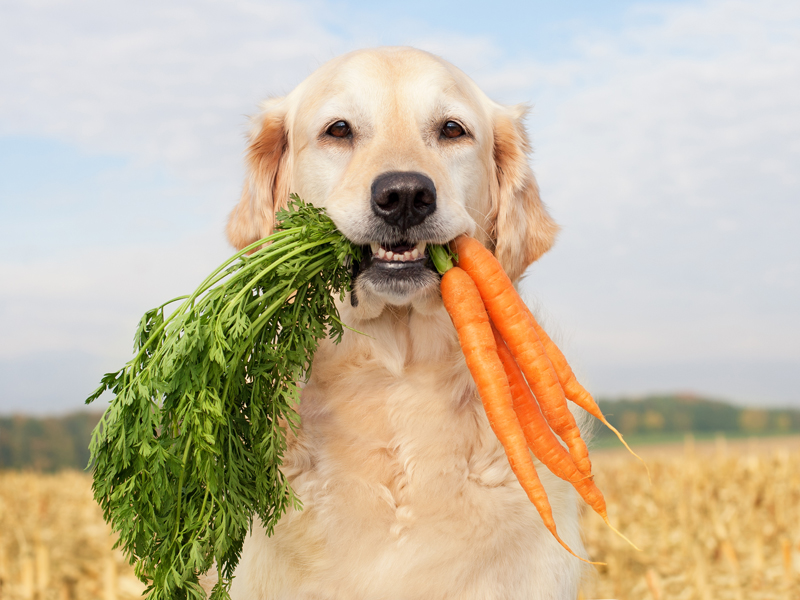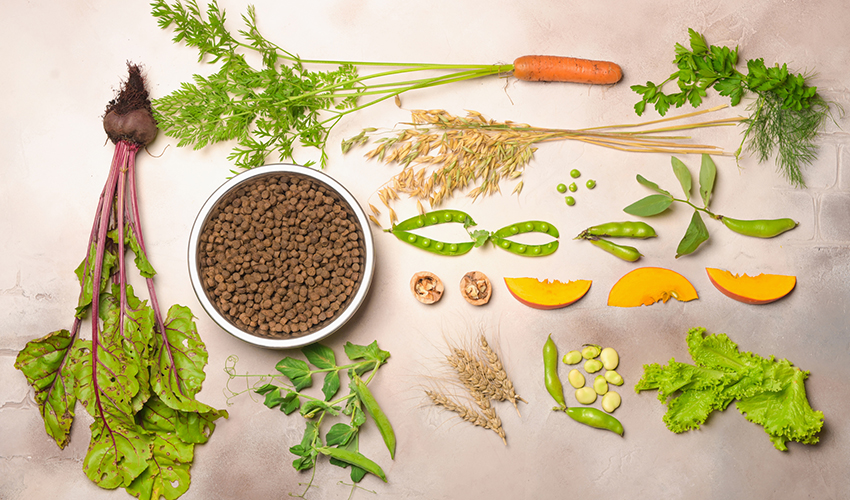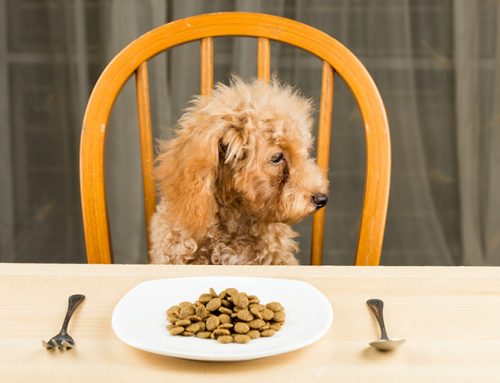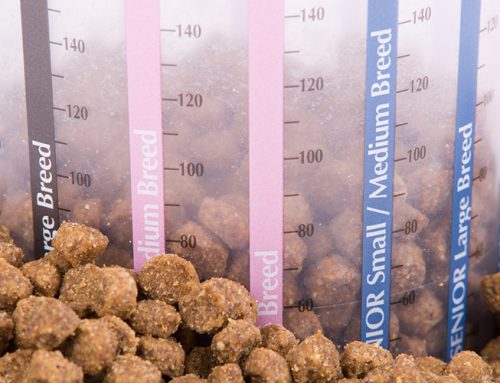It’s widely acknowledged that dogs are meat-eaters, but unlike cats, they can and do eat plants.
“Dogs are scavenging, or facultative carnivores, which in general terms means they are preliminary meat-eaters but can survive on plant material alone if necessary,” writes vet Karen Becker on Healthy Pets. “The key word here is ‘survive.’ To survive is not to thrive.”
So while your dog may enjoy those added veggies, a piece of frozen mango, or occasionally wolf down a few pieces of broccoli, most dogs need meat protein to maintain overall health. Added grains, veggies, nuts, and fruit can provide your dog with the necessary nutrients, vitamins, and minerals on top of their normal protein. But a good quality dog food should list an animal protein in the first few ingredients.
Many owners choose to feed their dog grain-free food due to allergies, diet sensitivities, or a plethora of personal reasons. However, grain-free dog food doesn’t mean carbohydrate-free.
If your goal is to reduce carbs in your dog’s diet for health reasons, grain-free isn’t a sure thing
First of all: what are carbohydrates?
“Carbohydrates are the sugars, starches, and fibers found in fruits, grains, vegetables, and milk products,” according to Live Science.
They are one of the three ways bodies get energy or calories.
“Processed foods tend to be high in carbohydrate while very low in vitamins, minerals, and fiber, giving carbs a bad rap,” according to the American Diabetes Association (ADA). “Carbs come in many different forms.”
You may recognize some of the carbs below from the ingredient list on your dog’s food. There are three major types of carbs, according to the ADA.
Does my dog need carbs?
“Dog’s don’t require carbohydrates in their diet,” according to Lisa Rodier in Whole Dog Journal. “They can get everything they need from a diet that contains only protein and fat. Energy metabolism in the dog can be based on fat oxidation and the breakdown of protein to produce glucose.”
However, plenty of dogs enjoy carbs and are capable of digesting them. Carbs can also provide nutrients, promote a healthy digestive tract, and give your dog energy. Dogs don’t need carbs — that doesn’t mean there aren’t benefits to having carbs as part of a balanced doggie diet.
“Because of the dietary needs of dogs, both their tooth structure and intestinal tract have become adapted to an omnivorous diet,” writes veterinarians Ryan Llera and Cheryl Yuill for VCA Hospital. “This means that, under normal circumstances, dogs can meet their nutrition needs by eating a combination of plant and animal foods.”
They suggest that dogs can thrive if they’re fed a properly balanced vegetarian diet — but not an all meat one.
“To meet their energy needs, dogs have evolved to use proteins and fats as their primary energy sources, but they can also use carbohydrates for energy,” Llera and Yuill write. “The fact that the dog’s digestive system produces enzymes that are specific for digesting starches and sugars show that they are capable of digesting carbohydrates.”
Fibre, in particular, can support a healthy intestinal system in your dog.
“Fiber is often fermented into fatty acids by the beneficial bacteria naturally found in your dog’s intestine,” according to the American Kennel Club (AKC). “This fatty acid then helps to prevent the overgrowth of any bad bacteria.”
Fiber can help your dog produce healthy stools and help your dog feel full.

The AKC also suggests that fiber can help manage weight in overweight dogs.
While dogs can eat carbs, and as some suggest, need them, it’s important to feed your dog a balanced diet. The Association of American Feed Control Officials (AAFCO) set the guidelines for nutrient profiles for dog food. Adult dogs require their food to be at least 18 percent protein for health and maintenance. Heath issues, age, and sometimes dog size can mean your dog needs a modified diet, but 18 percent protein provides a baseline to start from. The AAFCO does not set minimum or maximum requirements for the amount of carbohydrate in dog food.
Some owners also chose to feed their dogs food with a high amount of carbs because these foods are typically less expensive. Always feed your dog the best quality dog food you can reasonably afford and avoid filler carbs like cellulose.






